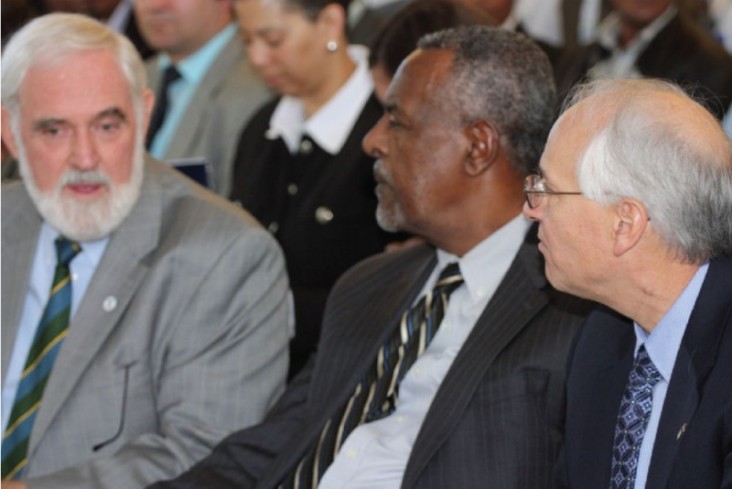
For Immediate Release
Most Americans have plenty of water to drink, bathe and flush the toilet, wash clothes and cars, water the lawn and fill the community pool. Even when tap water is safe to drink we often buy bottled water. Competition for oil, alternatives to fossil fuel, and the price of gasoline may be foremost on our mind. But competition for water may in fact be a greater challenge in the 21st century. As developing nations turn to hydro and solar power to fuel their energy and electric power needs, water will be the “new oil” for many nations around the world.
The 2006 Human Development Report: Beyond scarcity: Power, poverty, and the global water crisis foretells that “The management of water for livelihoods has, since the dawn of civilization, sought to harness the productive potential of water while limiting its potential for destruction…21st century water governance challenge may prove to be among the most daunting faced in human history.”
In countries like Ethiopia, water is both a precious resource and, for lack of access to it, a source of distress for families and communities, and a drag on the nation’s development. HDR 2006 presents data to show why increasing access to safe water and sanitation is one of the Millennium Development Goals: “unclean water and poor sanitation have claimed more lives over the past century than any other cause.”
Women trek long hours and distances to collect and then carry water home from wells, rivers or ponds; farmers unable to irrigate and solely dependent on the rain see their food production and incomes limited; children die from drinking dirty water or the bite of one mosquito bred in a nearby stagnant pool of undrained water; extreme weather events of drought and flooding test the resiliency of populations and governments and communities fight over access to water for themselves and their livestock.
Ethiopia’s Growth and Transformation Plan, its strategy to reduce poverty and propel national development, recognizes the essential role of access to water for people to thrive and industries to grow. USAID in Ethiopia is developing a number of programs to support the government’s plans and to bring communities around the vast country access to safe drinking water and sanitation and hygiene, as well as helping them build checkdams and canals and embankments to enable them to conserve water resources for food production and livestock and to prevent erosion. However, the government’s plans are constrained by lack of capacity in terms of planners, hydrologists, engineers, scientists who can develop and oversee the country’s ample river and groundwater resources.
An initiative to address the lack of qualified water sector professional and policymakers recently gave USAID Ethiopia cause to celebrate: inauguration of the Ethiopian Institute for Water Resources housed at Addis Abba University. The participation of U.S. Ambassador to Ethiopia Donald Booth and prominent Ethiopian-American, U.S. Science Envoy and World Food Prize winner Dr. Gebisa Ejeta of Purdue University, marked the significance of the event along with officials from the office of the Prime Minister and Ministry of Education.
USAID’s U.S.-Africa Higher Education Initiative in partnership with the American Council of Education and the Association of Public and Land Grant Universities promotes and enables collaboration between African and US Universities for the education of researchers, specialists, and managers who will use a mix of global science, technology, innovation and engagement with local communities to find lasting solutions to obstacles that impede development.
The University of Connecticut and Addis Ababa University have led the development of the Ethiopian Institute for Water Resources. With additional support from the Government of Ethiopia, the first cohort of students comprises 24 Masters and 18 PhD candidates and includes four women.
Dr. Ejeta congratulated the students accepted to the program noting the social, environmental, and economic urgency of using their learning for innovative and sustainable water management. Above all, Dr. Ejeta inspired the young Ethiopians to persevere in their studies noting how a USAID program gave him a boost as an impoverished but inspired young man who embarked in Ethiopia on a remarkable path of accomplishments in scientific research and teaching to the benefit of greater global food security.
Ambassador Booth in his keynote opening remarks urged faculty to ensure more young women complete their higher education and concluded, “Water is a critical component to the achievement of Ethiopia’s Growth and Transformation Plan. It is essential to health and well-being; it is essential to increase food production and food security; its power can provide light and energy as well as livelihoods for the development of communities and the economy; and, last but not least, the sound management of access to water resources is critical to peace. Water is the essence of life and a force for development and prosperity. For these vital reasons, I am honored to participate in the inauguration of this Institute. On behalf of the American people, I convey highest expectations for success in fulfilling your mission — to guide the sustainable development of Ethiopia’s water."







Comment
Make a general inquiry or suggest an improvement.